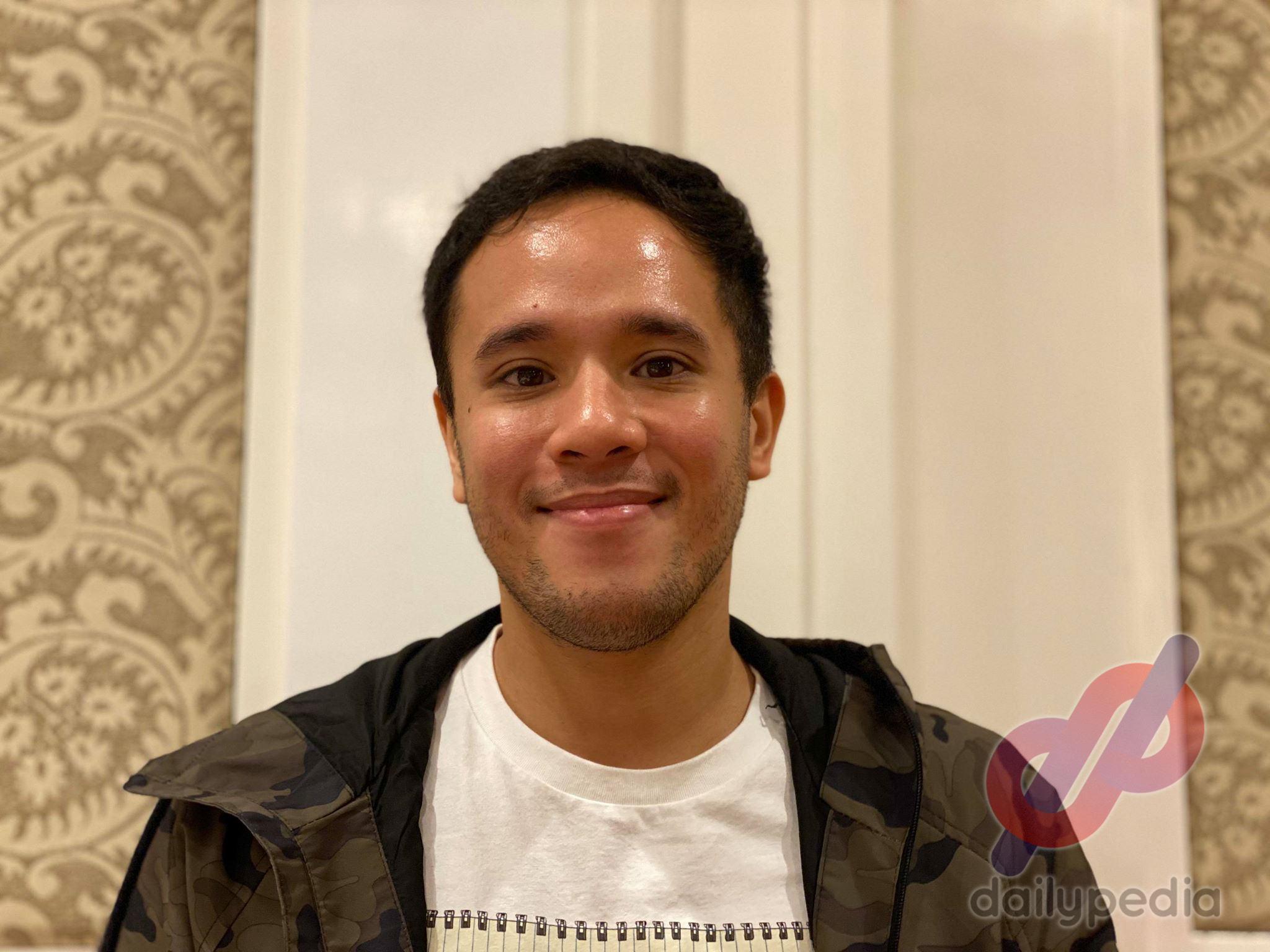- Aspiring directors should keep on going
- Short films are no different from regular films
Director and screenwriter Pepe Diokno, who is most known for his film Engkwentro that was awarded the Lion of the Future “Luigi de Laurentiis” Award for Best Debut Film, explained why he is keeping the short film tradition alive.

In an exclusive interview with LionHearTV, Diokno gave some insights in his new short film ‘Apart’, and why he thinks writing and storytelling is great.
Diokno said that his new short film is set in a Jollibee branch, and it is a very relatable story since this kind of setting is very common.
The story is about a couple Ron and Myles. Myles is a strong-willed and self-sufficient woman who gives the impression of a selfish and self-centered personality, and Ron is her seemingly accepting and understanding partner. Eventually, they go through difficulties, unable to get on the same page and stay in sync. But it is precisely due to these trials that learnings happen, and so do change and realizations.
“May theme kasi behind sa kwento ng Jollibee. Pero everything is inspired entirely by real life. Yung mga nakikita natin sa kahit na anong Jollibee ang puntahan natin. Si Myles ay independent, very driven na woman pero minsan nakakalimutan niya na meron syang relationship na kailangan niyang alagaan, meanwhile si Ron kailangn niyang matuto kung paano mag mahal ng isang independent na woman.”
Diokno said that he is able to empathize with the character of Myles since he himself was preoccupied with other things regarding the film’s script.
“Mas nakakarelate ako kay Myles kasi, medyo guilty ako sa mga nangyari sa script. Parang sometimes madaming kang iniisip, sometimes nakakalimutan mo talaga na may relationship ka pala na kailangan mong bigyan ng pansin.
“Nagkita sila sa Jollibee, tapos break na sila dun. Parang chance encounter. Baka sila,” he added talking about the introduction of the story.
Diokno believes that people always crave for stories, especially those that are very relatable.
“Ever since time in memorial ang gustong marinig ng mga tao ay kwento, never nag bago yan ever since. Nag simula tayo sa civilization we were telling stories orally, and then we were telling stories via book. Dumaan na yung great writers of literature, and then after that cinema came. We were telling stories via the screen and then that’s changing. From being only able to watch a movie in the movie house, nag iba na sya, nagkaroon na ng VHS, laser disc, DVD, and now the internet.”

The medium does not really matter, as long as the essence and aspects of a good story is present.
“So parang nag iba lang yung medium, andun na kasi yung internet eh. Kahit ano gusto mong panoorin, but yung essence niya ay kwento. Kwento na makakarelate ka, isang kwento na madadala ka, matatawa ka, maiiyak ka, kikiligin ka. Andun pa rin yung essence na yun. Nag iba lang yung medium.”
The most important thing is the essence of a story, this should always be acknowledged by writers in order to give the best possible story to the audience.
“The challenge for filmmakers is hindi mawala sa essence na kung ano yung isang magandang kwento. Meron kang magandang characters, meron kang magandang plot, at alam mo kung panong iweave lahat yun together, yun ang challenge.”
Before Diokno got to advertising, he was able to produce three films, and has his own film company.
“I’ve made three films before I started advertising, and then meron akong film production company.”
The interviewer asked if there was a difference between a regular film and a short film. Diokno says there isn’t any. Both should have important factors to make a good story.
“Sa pinaka-heart niya, wala talagang pinagkaiba. You have good characters, you have a good plot, you tell a story. Making a commercial or a short film is like running a sprint or like running a marathon. At the heart of it all, it’s all the same.”
The interviewer then asked Diokno to give some tips for aspiring directors, and mentioned that he himself has done short films in the past.
“You can make a short film with a phone,” says Diokno.
The interviewer then revealed that his friends would mock his films which makes him hesitant to even release them, and has also affected his self-esteem. Diokno admits that his first productions were awful, but he never gave up and is now very successful.
“Wag ka ma dishearten. Nung nagsimula ako hindi ko mapanood yung sarili kong pelikula kasi nakikita ko lahat ng mali eh. Feeling ko yung gawa ko is the most terrible film on the planet, and I still feel that way actually. Yung mga first films ko nasa YouTube pwede niyong panoorin, pangit talaga. I’ll be the first to admit na pangit talaga yung mga yun. Pagpasok natin sa pag gawa ng pelikula meron tayong expectations eh.”
Diokno advised the interviewer to just keep on going and never stop until progression is seen in his work. Taking criticism is very significant in improving, but Diokno says that there are certain criticisms that just do not help, and should just be ignored.
“Gusto mong tapatan yung Parasite at feeling mo matatapat mo yung Parasite kasi yun yung goal mo eh. Pero pag gumawa ka na, marerealize mo na parang anlaki ng difference between yung gawa ko [mo] and sa Parasite, and you’re like ‘Magaling ba talaga ako?’, ‘kaya ko ba talaga to?’, ‘Pangit siguro gawa ko, wag ko na ulitin to’. But hindi ka makakarating dito kung hindi mo iimprove ito. So kailangan mo lang gumawa ng gumawa hanggang marating mo ‘to. The advice would be ‘don’t stop’. Yung mga sinasabi sa ‘yo ng friends mo minsan valid eh. Kasi kung may mga specific na criticisms sila, take those comments and apply them to your next. Pero the moment na sinasabi na nila na blanket, pangit, blanket, di ka magaling, that’s not advice that you should listen to, ignore that. Listen to the specific advice but don’t listen to attacks on you or your talent because you have to believe in your own talent.”


